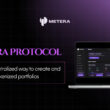Artificial intelligence (AI) and blockchain technology are two of the most disruptive innovations of our time, since the widespread use of the Internet.
AI refers to the ability of machines to perform tasks that normally require human intelligence, while blockchain technology is a decentralized and secure system for storing and transferring digital information.
Both technologies have the potential to transform industries and revolutionize the way we do business.
The interaction of these can develop in several ways. One of them is for AI to take advantage of the immutability and transparency of the blockchain to improve the precision and reliability of its results. Another is that blockchain technology can use AI to automate processes and decision making. Also some combination of both of the aforementioned forms.
In this article we explore the possibilities of using AI applied to blockchain technology, as well as the associated benefits and risks.
The Relationship Between AI and Blockchain
First you should know that there are different branches of AI, and without going too deep, I will say that there are three types according to their capacity:
—Narrow AI: designed for specific tasks such as facial recognition or driving a car.
—Artificial General Intelligence (AGI): endowed with extensive human-like cognitive capabilities to tackle new tasks autonomously.
—Superintelligent AI: (theoretical) AI that will surpass human intelligence in creativity, wisdom and problem solving.
Artificial intelligence and blockchain technology have one thing in common: data collection.
AI uses algorithms and models to process large volumes of data and extract useful information. On the other hand, the blockchain uses consensus protocols to record transactions in a distributed, verifiable and secure manner.
The combination of AI and blockchain technology has numerous benefits.
One of them would be improving data security and integrity. The blockchain provides a verifiable, immutable record of all transactions, ensuring that data can be verified and cannot be modified or deleted. AI algorithms that are based on this immutability would have greater security and reliability in their execution.
Another benefit of AI technology in blockchain is the automation of processes, since AI can analyze and process large volumes of data more efficiently than humans, which would allow the automation of repetitive and tedious tasks, saving time and resources. .
Additionally, AI on blockchain could also improve decision-making and risk management. AI algorithms could analyze historical data recorded on the network in real time, to identify patterns and trends, helping companies make more informed decisions and mitigate potential risks.
Application Cases
Countless application cases could be cited. Let’s look at some.
Smart contracts are used in Decentralized Finance (DeFi), and these could be even “smarter” with the intervention of AI, since it could analyze large amounts of data in real time and make very quick decisions based on patterns and trends. identified. This would improve efficiency by reducing the need for human intervention in repetitive tasks, mitigating the possibility of fraud and human error. Thus, AI algorithms could detect and prevent fraudulent activities, identifying potential risks and providing recommendations to minimize them.
Decentralized digital identity stored on blockchain provides (in theory) a secure and private way to verify people’s identity, which can be useful in areas such as banking, travel and healthcare, and AI could improve management in the detection and prevention of fraud.
Blockchain makes it possible to trace the origin and route of products throughout the entire supply chain, which helps guarantee their authenticity and quality. AI could manage activity to optimize logistics and improve efficiency to reduce costs.
Another example is the healthcare field, where patients’ complete medical history is recorded on blockchain, facilitating information sharing between healthcare providers to improve diagnostic accuracy, and AI could manage large amounts of medical data. in a general and anonymous way, to identify patterns and trends in health that doctors do not have and cannot evaluate.
The field of AI in blockchain is experiencing rapid growth, and there are several interesting startups and projects worth keeping a close eye on. Some examples include:
- SingularityNET – A decentralized platform for creating, sharing and monetizing artificial intelligence services.
- AIKON: a blockchain platform that allows companies to develop, deploy and manage artificial intelligence applications.
- Ocean Protocol – A blockchain protocol that allows developers to securely and reliably share, sell, and monetize data.
- Fetch.ai – A decentralized artificial intelligence platform that uses blockchain to enable autonomous machine interaction and collaboration.
Recently SingularityNET, Ocean Protocol and Fetch.ai have joined forces to create the Artificial Superintelligence Alliance, and as part of the formation of the Alliance, the $FET, $OCEAN and $AGIX tokens that power the three Alliance member networks will merge into a single $ASI token to compete with technology developed by large corporations. The news:‘Fetch.ai, Ocean Protocol and SingularityNET Unite to Create Artificial Superintelligence Alliance’
On Cardano there are several projects that use AI, such as CardanoGPT, NuNet, Cogito Protocol, Catsky AI, MarketRaker, Quatern.ai and Rejuve.AI
The Risks of AI
Despite the considerable benefits, implementing AI on blockchain also comes with risks and challenges.
One of the main challenges is privacy and data protection. As more data is stored on the blockchain, it is important to ensure that sensitive information is protected and only accessible to authorized parties.
Furthermore, in terms of privacy, the traceability of most blockchains presents challenges in terms of data confidentiality, because AI could identify transactions and users.
Another challenge is the lack of industry standards for AI in blockchain. Technology is evolving rapidly and laws and regulations do not always adequately accompany the evolution of technology within a framework of clear rules. This can create uncertainty and make adoption difficult.
AI on blockchain also raises ethical concerns, as algorithms can be biased and promote misinformation or execute actions that lead to injustice or discrimination.
Even when a blockchain is developed in a decentralized ecosystem, with good data distribution standards, AI could tend to centralize, and in fact I think it would be the natural tendency, since an algorithm designed to collect data and make decisions efficiently I would do it with actions to fulfill its objective and preserve itself, and that tends to concentrate decision-making power, and the more autonomous the algorithm, the more efficient it will be, but the more centralized it would become.
Final Words
In short, the combination of artificial intelligence and blockchain technology has the potential to transform industries and improve process efficiency and security.
However, it also presents challenges and risks that must be addressed. With proper implementation and an ethical approach, AI on blockchain can provide significant benefits.
The exponential advance presented by AI technology is surprising and alarming at the same time, because the trend is the autonomy of machines, and that may be our Achilles heel.
In that sense, the history of humanity shows us a large number of events in which power and money prevail over ethics and moral values, and that this human behavior is exacerbated over time, because the evolution of technology is an efficient catalyst.
“Humanity is acquiring all the right technology for all the wrong reasons“
—Buckminster Fuller
. . .
If you are interested in going deeper into the subject, I have written a related article some time ago: ‘Technocracy In The Information Age’










